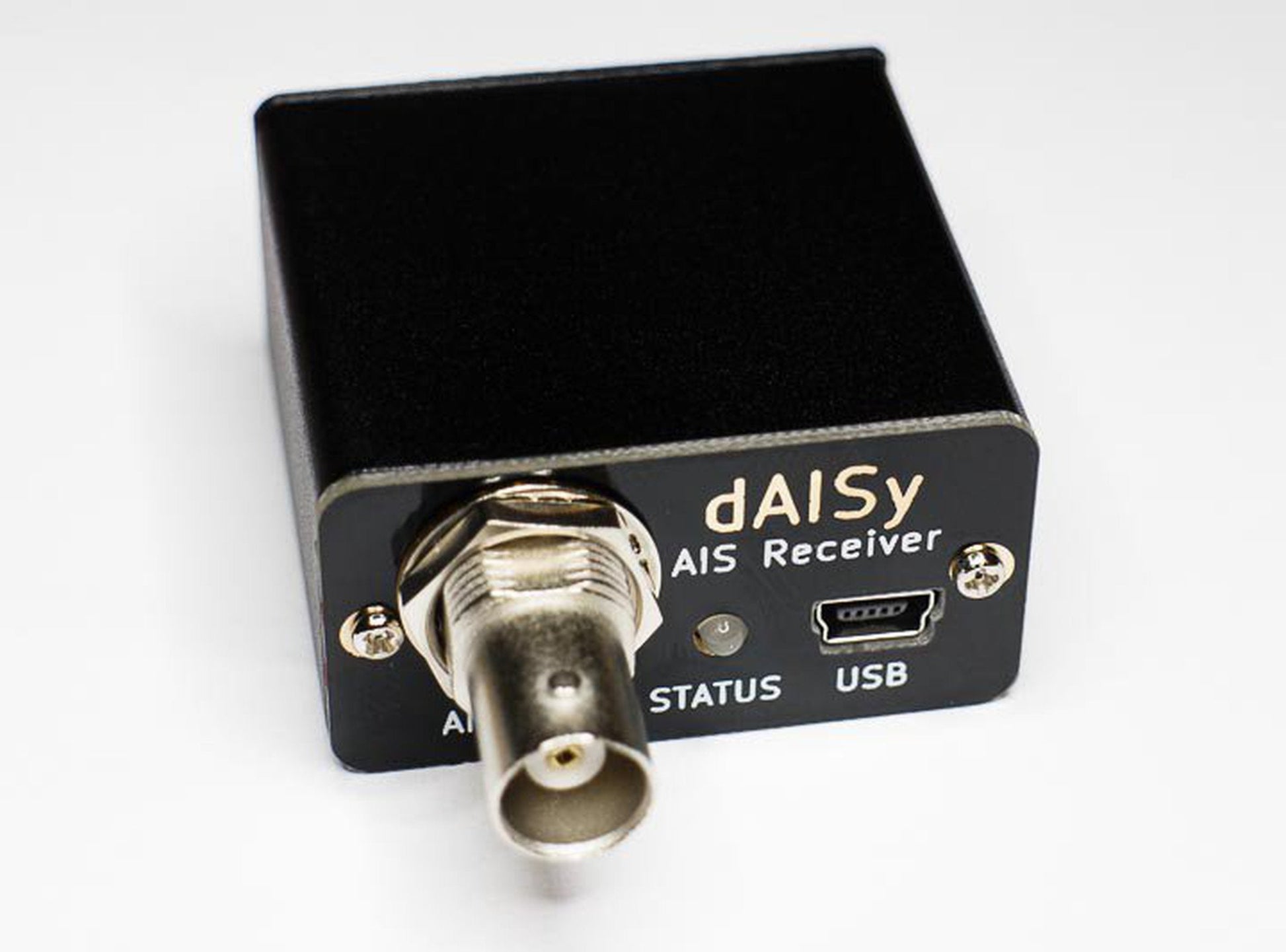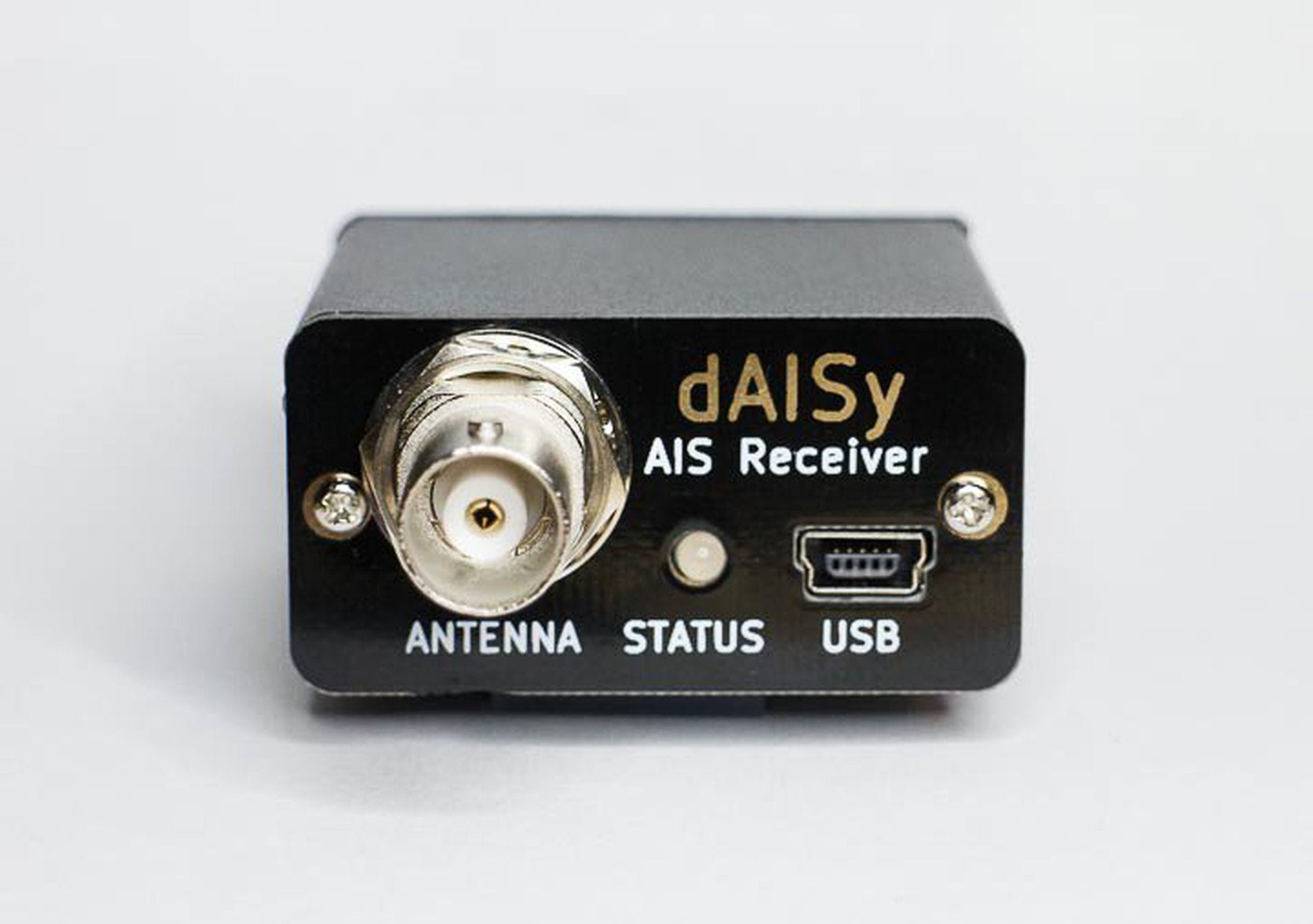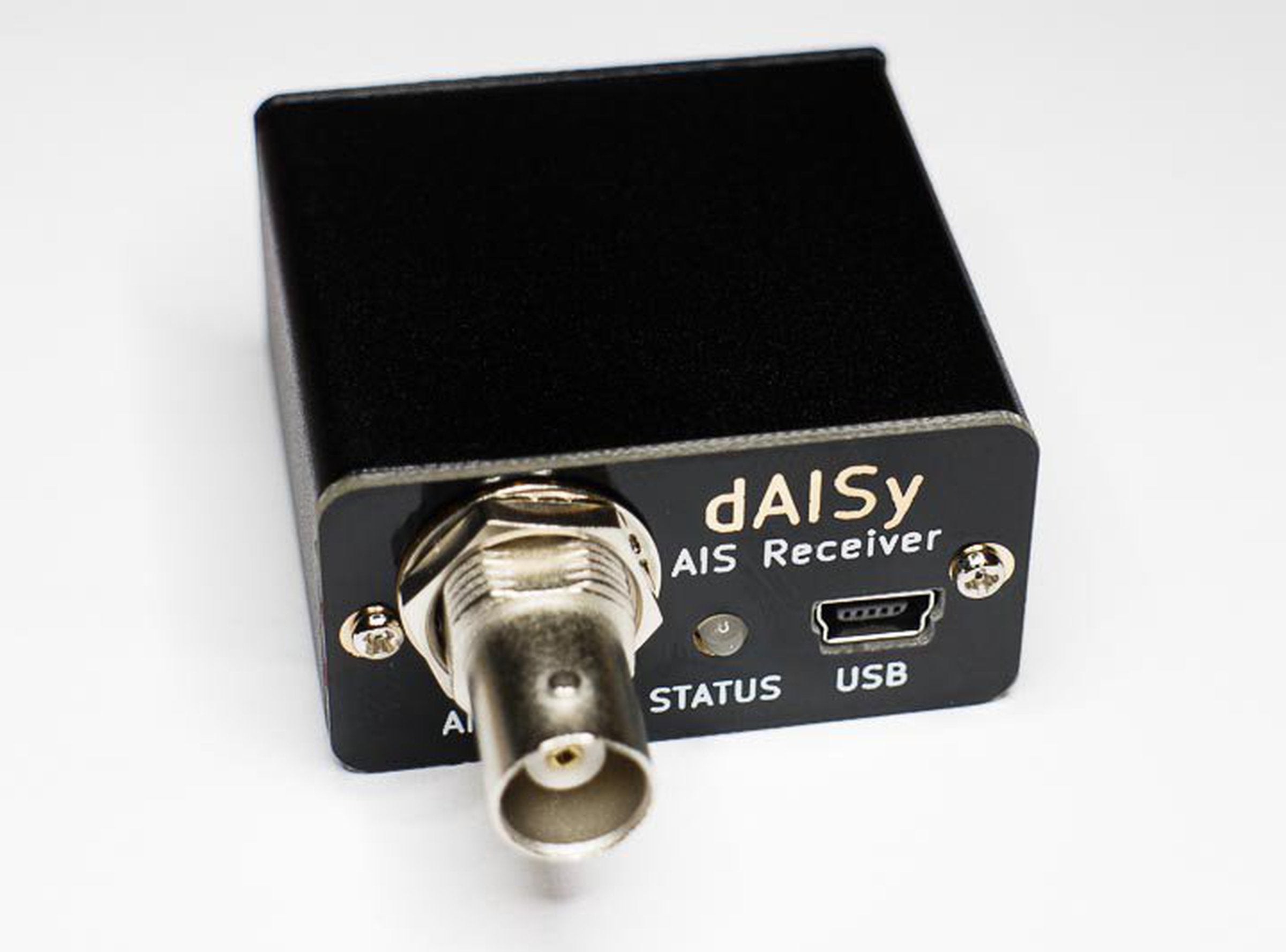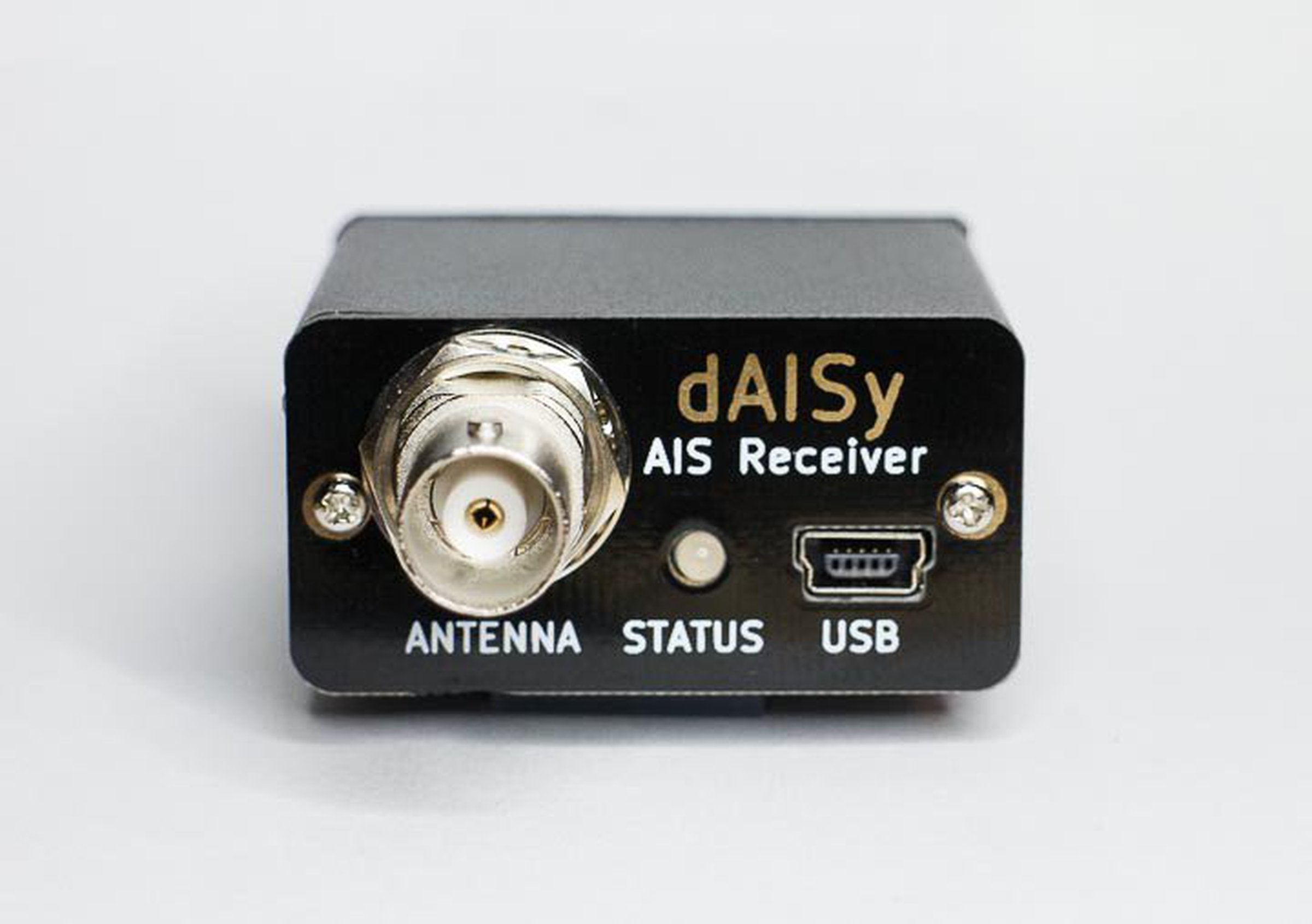

dAISy AIS Receiver - The Original
- Regular price
- £65.99
- Sale price
- £65.99
- Regular price
-
(Manufacturer Description)
AIS doesn't have to be expensive. With dAISy all you need to start tracking ships are a VHF antenna, a Windows, Mac, Linux or Android device, and a clear view of the sea.
This marine AIS receiver works great with OpenCPN, OpenPlotter, Ship Plotter and any other software that accepts serial data input. dAISy is also well suited for reporting local ship traffic to services like MarineTraffic.
With its small size and very low power consumption, dAISy is the perfect AIS receiver for DIY projects. Also check out our dAISy HAT for the Raspberry Pi.
If you are looking for an AIS receiver to connect with your chartplotter, our 2-channel dAISy 2+ with NMEA 0183 output is for you.
Specification
- Single channel receiver
- Receiving on channel A (161.975 MHz) and B (162.025 MHz)
- Smart channel hopping receives 40-60% more messages than traditional single-channel receivers
- Very low power consumption, less than 100mW in receive mode (<20mA at 5V)
- 38400 baud serial output over USB in industry standard NMEA format (AIVDM)
- No drivers required for Windows 10, Windows 11, Mac OS X and Linux (driver available for older versions of Windows).
- Supported by qtVlm, Boat Beacon, OpenCPN and SailGrib WR on Android devices with USB OTG.
- Optional TTL serial output (3.3V, requires soldering)
- Small size: 63 x 44 x 23 mm
- Very robust aluminum enclosure
- BNC connector for 50 Ohm VHF antenna (antenna not included)
- Mini-USB connector for data and power (3ft USB cable included)
- Made in the USA
dAISy works great with OpenCPN and OpenPlotter
OpenCPN, an open source chart plotter and navigation software, can be used with dAISy to track ships on a map. Any software running on a PC, Mac or Linux computer that accepts AIS data from a serial input will work with dAISy.
Several of our customers built chart plotters based on Raspberry Pi, OpenCPN and dAISy. A detailed write-up can be found here. A similar project based on the UDOO Neo single board computer can be found here.
Disclaimer: WE DO NOT RECOMMEND to rely solely on dAISy for navigation and collision avoidance!
Reporting to MarineTraffic
dAISy is well suited to report nearby ship traffic to websites and services like MarineTraffic, FleetMon, AISHub or Pocket Mariner.
A user of an early prototype of dAISy documented how to configure a Linux system like Raspberry Pi to report directly to MarineTraffic here.
An alternative approach is to use Kplex. Kplex is a NMEA-0183 Multiplexer which allows to feed the AIS data stream to multiple targets, including services like MarineTraffic and AISHub. Kplex also allows you to setup a NMEA server to distribute AIS to other devices on your network, like for example via WiFi to a navigation app running on an iPad. MUPLEX for Linux and NMEA Router for Windows are a similar tools.
NMEA 0183 option
With the NMEA 0183 option, the dAISy AIS Receiver can directly talk to chart plotters and other marine electronics. In addition, the integrated DC/DC converter allows to power it from your boat's 12-24V power system, removing the need for a USB power source.
For more information and detailed specification of this adapter see the NMEA 0183 / RS-422 Adapter for dAISy product page.
Also check out the 2-channel dAISy 2+ with support for NMEA 0183 already built-in.
Auxiliary Serial Output
For tinkerers, an auxiliary serial data stream is broken out on the PCB. With a bit of soldering, advanced users can combine dAISy with a Bluetooth or WiFi module to receive AIS on wireless devices, or connect a data logger like SparkFun OpenLog.
If UART serial communication is all you need, also take a look at the dAISy HAT which can also run standalone without a Raspberry Pi.
And no, we won't void your warranty for taking a screw driver and soldering iron to dAISy :-)
How dAISy compares
With our open source work, we pioneered a new category of AIS receivers designed around the SiLabs EZRadioPro single chip ISM radio. This architecture is instrumental for the very low price, small form factor and low power consumption. The trade-offs are longer acquisition time, lower sensitivity and less range than traditional AIS receivers.
Field tests with conventional dual-channel receivers (like SmartRadio SR162, advanSEA RX-100) showed that dAISy 2+ indeed has lower range and is slower to acquire targets. However dAISy 2+ clearly outperforms other low-cost receivers that we've tested (Quark-elec, MarineGadget).
Our observation is, that with a good antenna dAISy is well suited to monitor local ship traffic. If you need maximum performance and are willing to pay for it, go with a receiver from the established brands.



